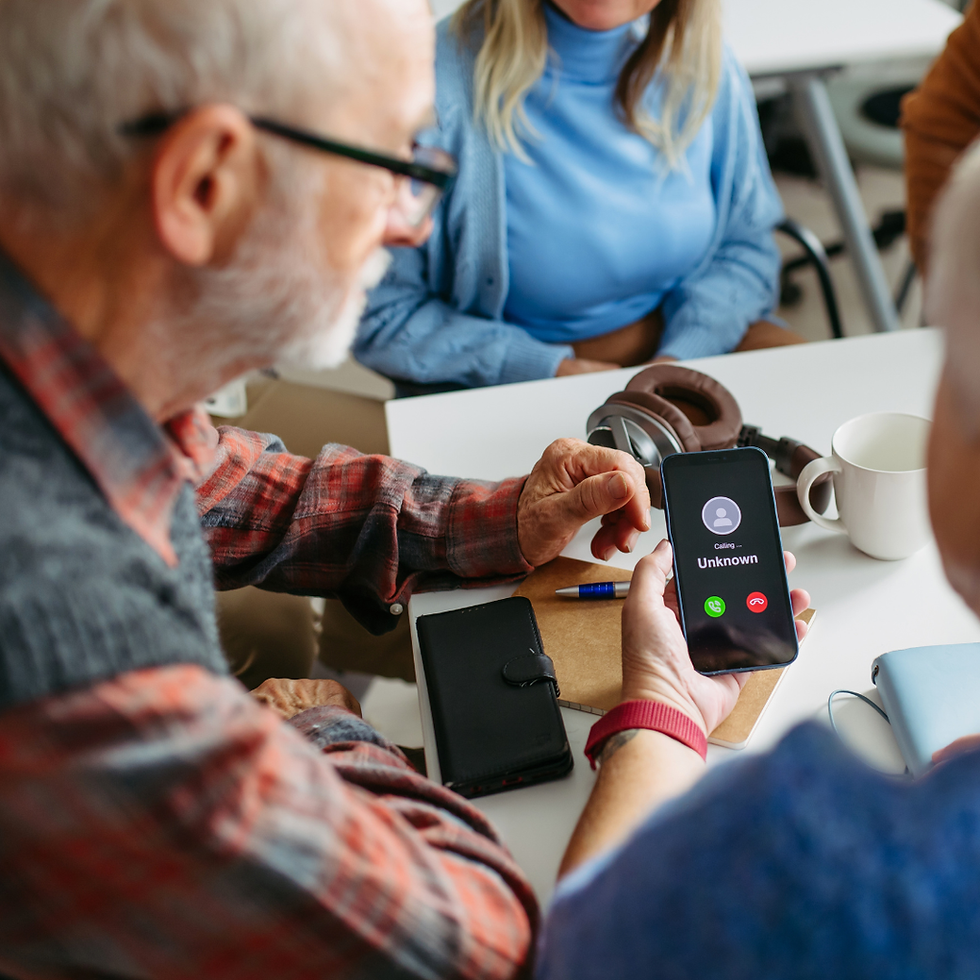10 Unique Methods of Identity Protection to Safeguard Your Digital Presence
- Santa Ana FCU
- Jan 28, 2024
- 2 min read

As we navigate an era characterized by widespread digital connectivity, prioritizing the protection of your identity is of utmost importance. With the surge in cyber threats, it is vital to incorporate distinctive and efficient methods to safeguard your personal information, ensuring its ongoing security. Here are 10 distinctive approaches to fortify your identity in the digital realm:
Biometric Authentication:
Leverage the power of biometrics, such as fingerprints, facial recognition, or iris scans, to add an extra layer of security. Biometric authentication provides a unique and personal identifier that is difficult for others to replicate.
Password Managers:
Implementing a reliable password manager can help you generate and store complex passwords for all your accounts. This eliminates the need to remember multiple passwords and reduces the risk of falling victim to password-related breaches.
Two-Factor Authentication (2FA):
Enable 2FA wherever possible to add an additional layer of verification. This commonly involves receiving a one-time code on your mobile device, ensuring that even if your password is compromised, unauthorized access is thwarted.
Virtual Private Network (VPN):
Use a VPN to encrypt your internet connection, making it more challenging for hackers to intercept your data. VPNs provide a secure tunnel for your online activities, protecting your identity from potential threats on public Wi-Fi networks.
Regular Security Audits:
Conduct periodic reviews of your digital presence. Check your accounts for any suspicious activities, update passwords regularly, and review privacy settings on social media platforms to ensure you are sharing information only with trusted individuals.
Shredding Physical Documents:
Identity theft isn't limited to the digital world. Shred physical documents containing sensitive information before disposing of them to prevent dumpster diving and unauthorized access to your personal details.
Email Encryption:
Utilize email encryption tools to secure the content of your emails. This prevents unauthorized access and ensures that even if your email account is compromised, the information within the messages remains confidential.
Social Media Caution:
Be mindful of the information you share on social media. Limit the personal details visible to the public, and consider adjusting privacy settings to restrict access to your profile and posts.
Device Tracking and Remote Wiping:
Activate device tracking features on your smartphones, tablets, and laptops. In case of loss or theft, these features allow you to locate your device and remotely wipe sensitive data to prevent unauthorized access.
Secure Wi-Fi Networks:
Protect your home Wi-Fi network with a strong password and encryption. Avoid using default router credentials, and regularly update your router firmware to patch vulnerabilities that could be exploited by attackers.
Stay proactive, stay informed, and stay secure in the digital age.




